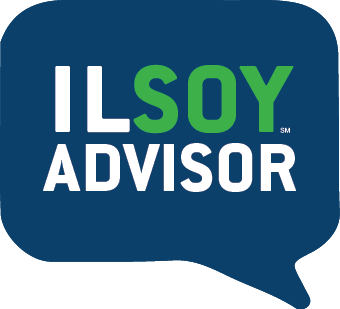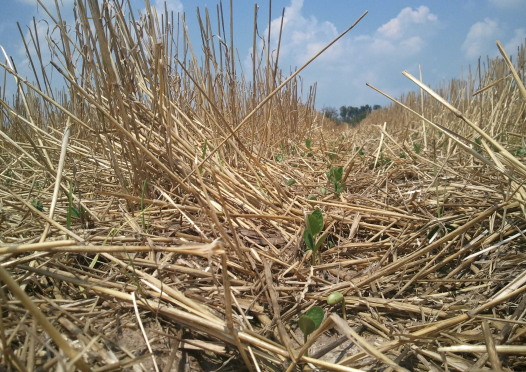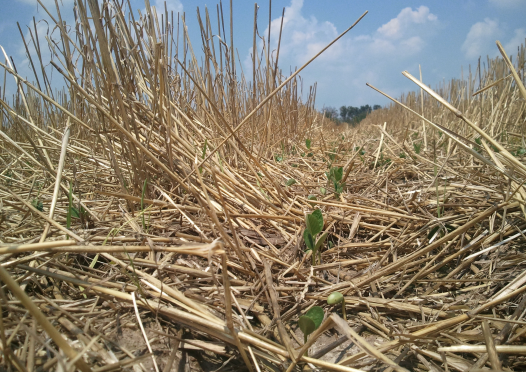ILSOYADVISOR POST
Get Covered with Available Farm Programs in 2021
Illinois soybean and wheat farmers have plenty of programs at their disposal to protect and grow 2021 crop production. The best approach is to understand what programs are available, take note of any registration or application deadlines and double-check for updates to last year’s programs.
That was the advice of a trio of farm program officials speaking during the 2021 Double-Crop Farmers Forum sponsored by ISA, the Illinois Wheat Association and several other partners. Brian Frieden, Illinois state director with the Risk Management Agency; Wendy Mueller, Illinois compliance chief program officer for the Farm Service Agency (FSA); and Ray Gvillo, Illinois district director with FSA; outlined several programs for participants.
Frieden notes several crop insurance changes have been made for 2021, including moving the earliest planting date up and changing the final planting date for Following Another Crop (FAC) soybeans from June 20 to July 5. He also says FAC and Not Following Another Crop (NFAC) soybeans may be insured with separate enterprise and optional units in Illinois counties where both practices are offered. Shelby County was added to the southern counties list for 2021.
“For FAC beans in a county not listed, you can still make a request to your crop insurance agent and a reference county, likely a neighboring county, will be assigned for individual coverage,” he says, adding that the crop insurance sales closing date is March 15 for spring-planted crops.
Other changes to Illinois crop insurance options affecting soybean and wheat farmers include:
- Establishing double-crop history for prevented planting eligibility based on the greatest number of acres the insured has double-cropped in two of the last four years.
- Creating an exception that does not require acreage planted to an uninsured second crop following a failed first crop within the same crop year to be subtracted from prevented planting eligible acreage.
- Providing an exception allowing a farmer to be paid a prevented planting payment based on a crop other than the crop planted on the acreage if proof is provided that the farmer intended to plant another crop or crop type on the acreage.
In addition, Frieden encourages farmers to talk with their crop insurance agent about the new Extended Coverage Option (ECO) that can be purchased as an endorsement with or without the Supplemental Coverage Option (SCO), as well as the Quality Loss (QL) option. The Cover Crop Initiative offered with the Illinois Department of Ag for a $5 discount on crop insurance for acres planted to a cover crop with an insured crop that follows is already closed for the 2021 season.
“Review your policy coverage and options with your agent to make sure it still meets your needs,” he says. “The RMA website offers more details about policy changes and coverage.”
Gvillo and Mueller encourage farmers to contact their FSA county office to be sure they have all required documents completed and signed for 2021. The agency is using Box to share files with farmers. They highlighted the following programs and deadlines available to Illinois farmers:
- The Quality Loss Adjustment Program for 2018 and 2019 continues until March 5. Applications are available at county offices. Eligible farmers must have had a five percent loss on the crop including forage crops. Verifiable evidence must come from the farmer and may be sales receipts, scale tickets, contracts or forage nutritional tests.
- Agriculture Risk Coverage (ARC) and Price Loss Coverage (PLC) program decisions and sign-up must be completed by March 15. Acreage reports are required to be eligible for most programs. The deadline for spring-seeded crops is July 15.
- The Conservation Reserve Program (CRP) sign-up for 10-15-year contracts ends February 12. CRP sign-up for special priority areas is continuous. Sign-up for CRP Grasslands cost-share begins March 15 for implementing approved conservation plans.
- Details for the Forest Management Incentive Program have not been released yet.
- The Organic Certification Cost-Share Program, which reimburses 50 percent of costs up to a specific limit, remains available through fiscal year 2023.
- Various FSA farm loans are available to cover a wide range of needs.
- Contact county offices regarding beginning farmer programs or visit farmers.gov.
Click here to watch the recorded session of the Double Crop Farmers Forum.





Comments
Add new comment